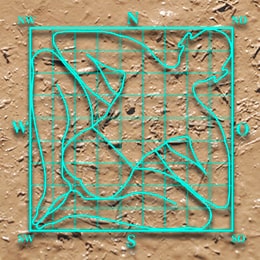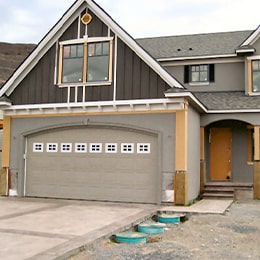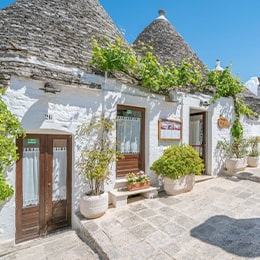The Importance of Trees in vastu
Having plants and trees around the house is essential for creating an auspicious environment. Some plants are useful for us and some plants help in correcting the Vastu doshas. We should be aware of their utility. Heavy trees should not be planted in East, North and North-East in the premise or in the vicinity of the building. Planting of Peeped tree is strictly prohibited in house rather it should be planted in temples.
Utility of Different Trees
Auspicious trees
Presence of Ashoka, Maulashree, Shami, Champa, Anar, Supari, Kathal, Ketaki, Malti, Kamal, Chameli, Nariyal and Banana in the house promotes prosperity. Lakshmi ji blesses such a house.
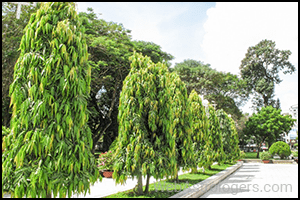
Ashoka
It is very auspicious to have Ashoka tree in the North. It helps to nullify the ill effects of many other plants and trees which may be present within the premises.
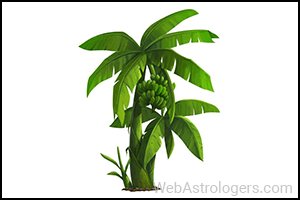
Banana
It is auspicious to have banana within the compound. It is extremely auspicious in the Ishan kona. If a Tulsi plant is near the banana it becomes even better. Studying under a banana tree in the Ishan is very fruitful.
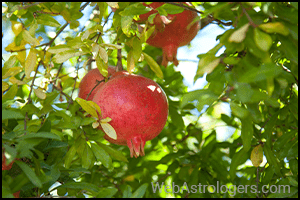
Pomegranate (Anar)
A fruit bearing anar tree is considered to be auspicious, but it should not be in the Agneya and Nairritya kona. In some places having anar in the house is not considered to be good, but this view is applicable to the non fruit bearing variety of anar.
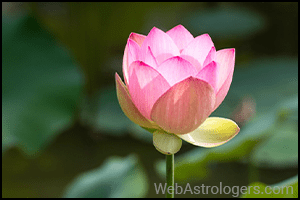
Lotus (Kamal)
It is auspicious to have banana within the compound. It is extremely auspicious in the Ishan kona. If a Tulsi plant is near the banana it becomes even better. Studying under a banana tree in the Ishan is very fruitful.
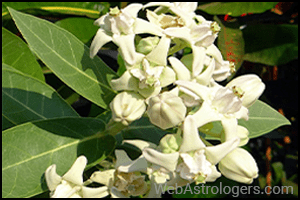
Aak (Shwetark)
Shwetark is a milk oozing plant. According to the principles of vastu, plants which ooze out milk are not suitable for the house, but shwetark is an exception. It should not be planted in the house but if it grows on its own, then it should not be pulled out, Instead it should be looked after and watered. Haldi and rice should be offered to it. With good care, it gives peace and happiness to the people living in the house. It is a belief that if a shwetark grows and flourishes in a house then that house also flourishes and prospers. That land is supposed to have secret wealth.
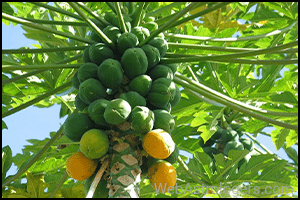
Papaya (Papita)
Vastushastra considers papaya to be inauspicious in the house. If it happens to grow on its own, then it should be pulled out and planted elsewhere. If it is already grown up, then it should not be cut. One should wait till it stops producing flowers and fruit. Then a hole should be made on its trunk and some asafetida (hing) should be packed in it. The tree will dry up on its own. After this a beneficial plant must be planted to counteract this unkind act.
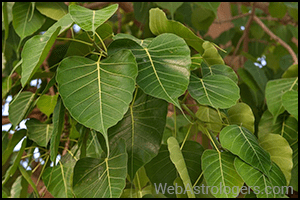
Peepal, Goolar and Pakad
Peepal tree in the West is considered to be beneficial. Even if peepal is grown in a pot for pooja purpose, it should be placed in the West. Similarly Goolar is beneficial in the South and Pakad in the North. In the opposite directions they start giving the opposite results.
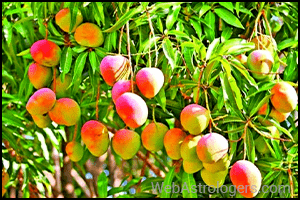
Mango (Aam)
From the point of Vastu, mango is not an auspicious tree to have, but if it grows on its own, it should not be pulled out. Everyday some black til should be sprinkled around its roots followed by watering. Additionally a Nirgundi plant should be planted near it to destroy the ill effects of Mango.
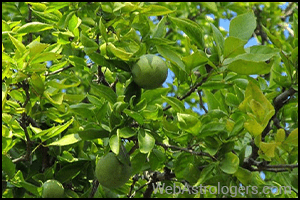
Bilba (Belpatra)
It is extremely auspicious. It is a favourite of Lord Shiva. Lakshmi Ji, the Goddess of wealth and prosperity resides in a house for generations where the tree of Bel is planted.
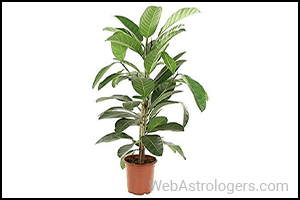
Banyan (Bargad)
It is an important tree according to Vastu. It is very auspicious to have Bargad towards the East of house or an institution. It fulfils all the desires, but its shadow should not fall on the house. Bargad is not auspicious in the West of the house.
.png)
Custard apple (Sitaphal)
It is not auspicious within the boundary of the house. But if it grows on its own, it should not be pulled out, instead an Amla and a fruit bearing Anar should be planted along side it. This destroys the ill effects of Sitaphal.
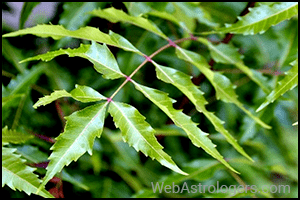
Margosa (Neem
Having Neem in the Vayavya kona is very auspicious. If a person plants seven such Neem trees he attains Shivaloka after death. A person who plants three Neem trees enjoys the happiness of surya loka for hundreds of years.
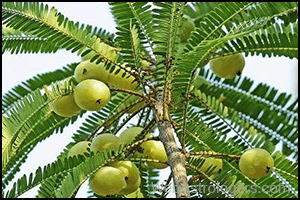
Amla
It is an auspicious tree. It destroys the ill effects of many other trees
.png)
Rose apple (Jamun)
In South direction, this tree is considered to be good. In other directions it is neutral. With Jamun in the North, Amla and Anar in the house is also a must.
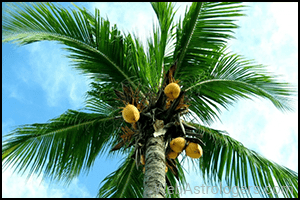
Coconut (Nariyal)
It is an auspicious tree to have in the house. It promotes the progress, honour and status of the family.
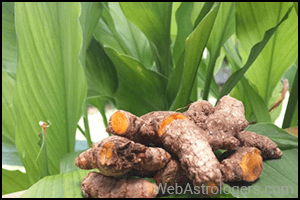
Turmeric (Haldi)
It is not considered auspicious to have haldi (Turmeric) within the boundary of the house. Even if it grows on its own, it should be removed
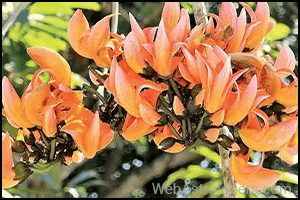
Palash
It is an inauspicious tree for the house.
.png)
Henna (Mehandi)
It is inauspicious in the house.
Inauspicious trees
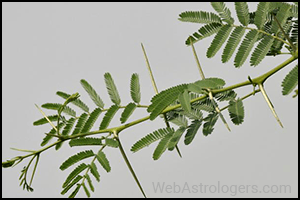
Babul
Presence of a Babul tree creates disputes and bickering in the house.

Bamboo
It is considered very inauspicious but according to Chinese belief it is auspicious.
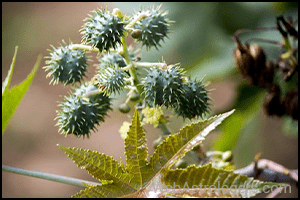
Arandi
It is very inauspicious. It creates a lot of hurdles in the lives of the residents.

Rose (Gulab)
Thorny Gulab is considered inauspicious, but in practice it is not found to be so. However the creeper variety is not auspicious.
Some Important Considerations
• The main door should be always decorated with flowers, plants and creepers. This produces an ambience of peace and happiness.
• Having garden or trees towards the North or West of the house is auspicious.
• Having a tree or a plant directly in front of the main door amount to vedha, so nothing should be planted directly in front of the main door.
• No tree or plant should be planted in front of, or along the axis which joins the main door with the back of the house. Such a plant would be inauspicious.
• Desert plants like cactus etc. should never be planted or nurtured in the premises of the house or in the plot. It produces tension and bitterness in the house. Some people are very fond of having cactus in the pots or in the ground. This is very undesirable according to Vastu.
• Having Ber in the residential premises produces enmity with outsiders and there is constant trouble from the enemies.
• Having Tulsi in the house is extremely auspicious.
• Brahmins and people related to the field of education should plant and nurture Ava, pakad, paras, peepal and goolar trees in the appropriate directions within the boundary of the house, but their shadow should not fall on the house.












